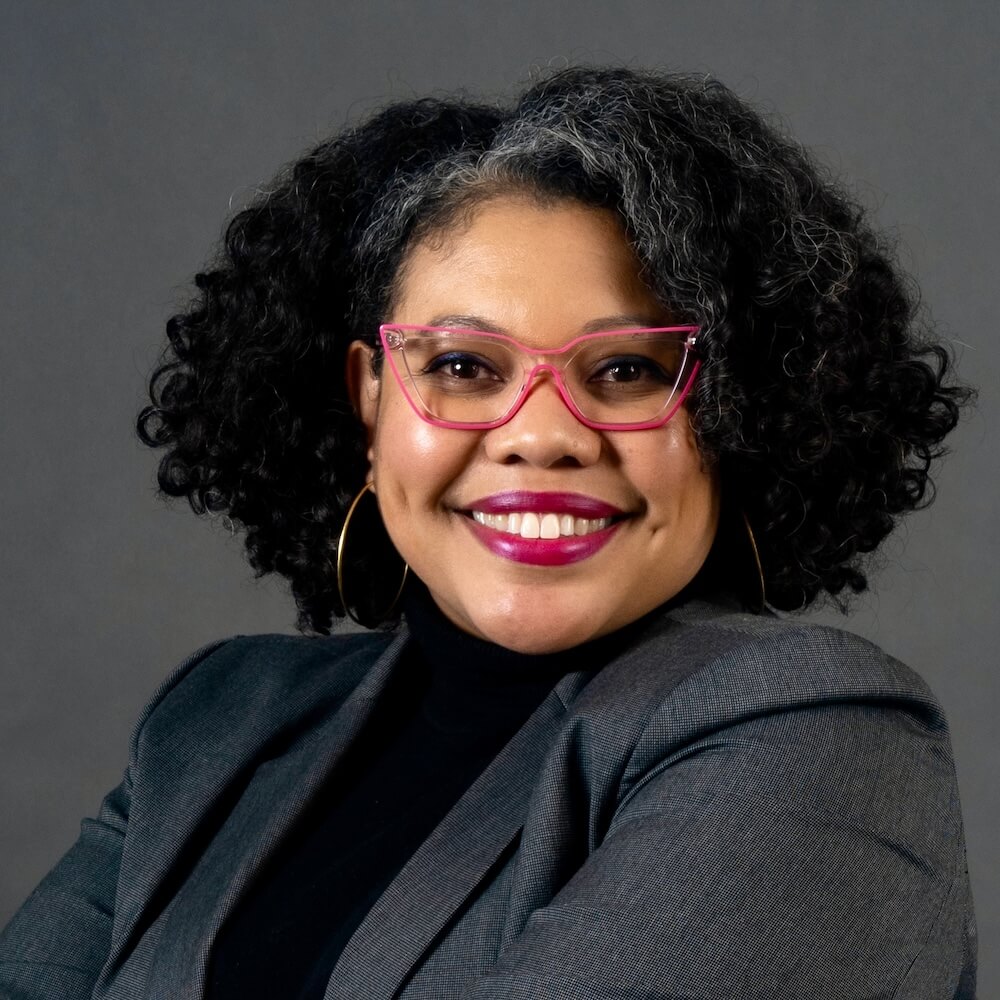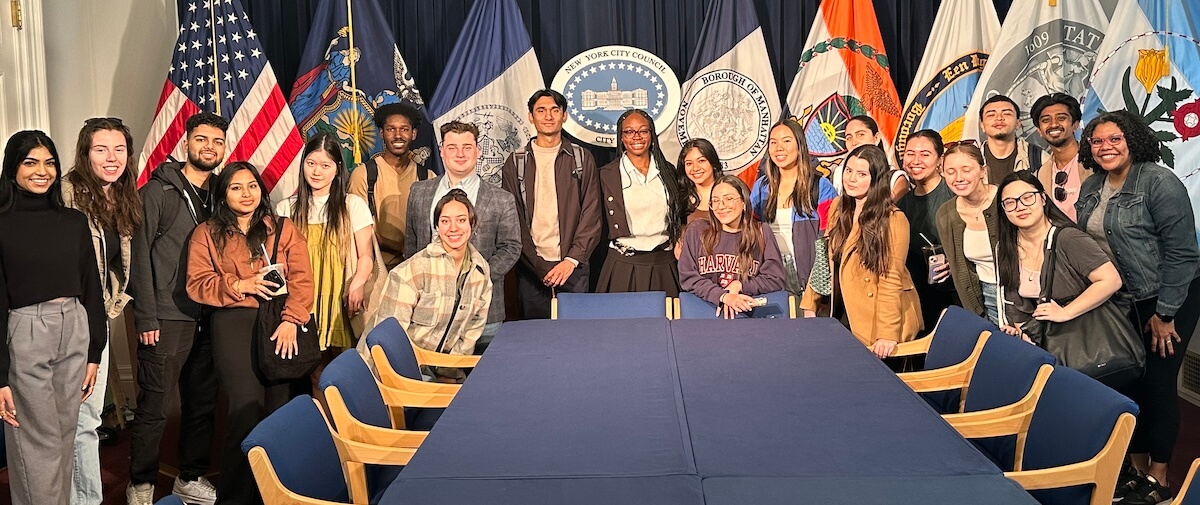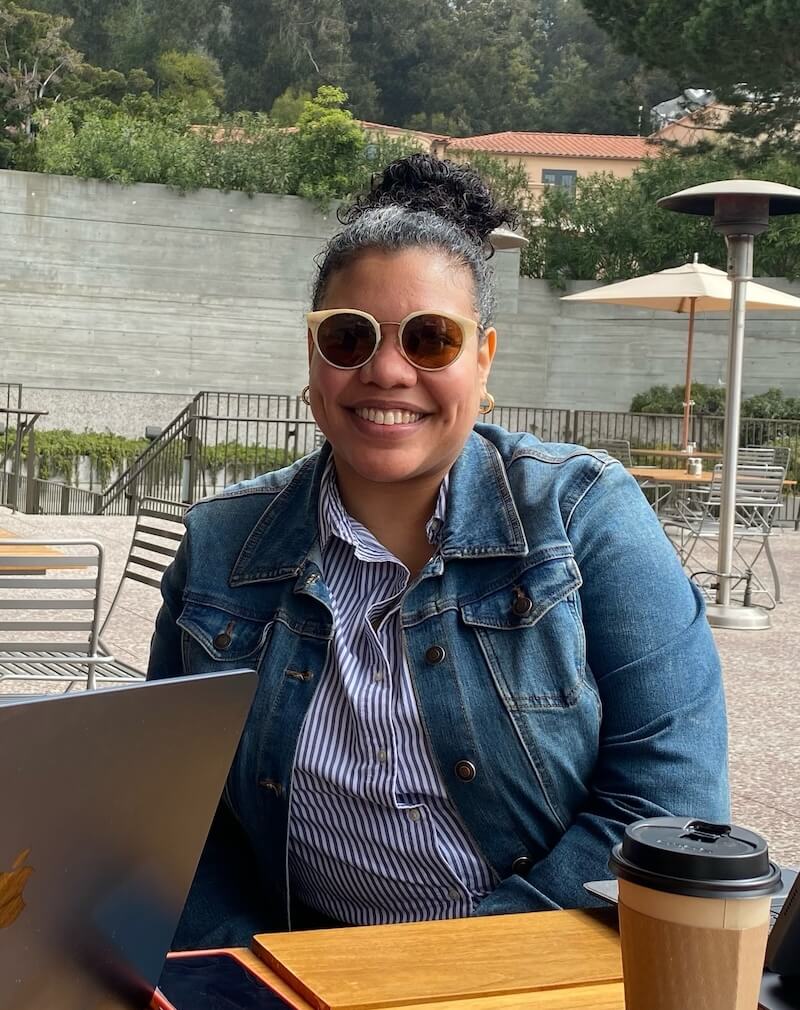
Faculty Spotlight
Judy Pryor-Ramirez
Clinical Assistant Professor of Public Service; Director of Executive Master of Public Administration Program — NYU Wagner
My research agenda currently focuses on how to authentically engage those most directly impacted by social issues within institutional practices as a means to achieve social equity and justice. This shows up in two projects. First, I’m collaborating with an institutional partner to utilize the Story Circle Interview Method (created by me in 2020) as a participatory data collection technique to listen to the voices of their stakeholders. Paired with participatory data analysis, it enables stakeholders to help shape the institution’s future directions. Secondly, I’m working on a paper for a conference to understand the relationship between constituent lived experience on social policy bodies (i.e., housing or education advisory boards) and three concepts: leadership, voice, and power.
Sterling Network NYC: A Bold Experiment in Relationships, Power & Imagining Leadership Otherwise (a report for the Robert Sterling Clark Foundation, 2023)
I’m deeply influenced by bell hooks, specifically her writings on feminism and teaching. I had the opportunity to work with her at The New School, and we brought her to campus as a scholar-in-residence roughly from 2013 to 2016. While her work on feminist thought and engaged pedagogy find their way into my own work, I am most influenced by her politics of care. She cared deeply about her family, friends, colleagues, students, and audience; however, caring for others did not mean they were immune to her critique. So, I continue to meditate on this relationship between care and critique.
I really enjoy teaching my fall course, Leadership and Social Transformation. Like many of my courses, I aim to bridge theory and practice, and I get to draw on my expertise as a former organizational leader of social justice projects. This course builds from a core course at Wagner called Management and Leadership, but it allows me to delve more deeply into social movement histories and contexts as well as organizational and leadership practices needed for social transformation efforts. I get to invite amazing colleagues from the field to speak to the class and integrate contemporary texts that teach us about the leadership needed today. Finally, I really enjoy teaching the practice of rest and respite in order to sustain oneself in the “long walk toward freedom.” This is a tremendously overlooked idea as a leadership practice, but absolutely necessary. I’m grateful for training by the good folks at the Rockwood Leadership Institute, who planted this seed years ago, and contemporary works by Tricia Hersey (Rest Is Resistance) and Octavia Raheem (Pause, Rest, Be), who invite us to practice rest regularly.

Judy and her students at New York City Hall for a guest lecture by city council staffers in April 2024.
The Early Career Faculty Institute (ECFI) is synonymous with my experience at NYU so far because I was selected to participate in the same semester I began my career here (fall 2022). I have enjoyed meeting colleagues from other parts of the university and participating in curated workshops to support our transition to NYU. I’ve been able to take advantage of writing retreats to advance my feminist writing practice for public audiences. The retreat in January 2024 at Easton’s Nook gave me four days to prepare an essay “Remembering bell hooks and Ella Turenne,” published in March 2024 for The New Historia, an online platform for researchers committed to recovering women’s contributions to their fields. I wrote an essay about two Black feminists and the relationship between their bodies of work. The writing salon at NYU LA during spring break in March 2024 enabled me to write and finish another feminist essay, this time a book review titled A Letter to Sandra Guzmán: Reflections on ‘Daughters of Latin America,’ an anthology about Latine writers for The Latinx Project’s online journal Intervenxions. Each location provided the right amount of time and space to complete these essays.
I’d most like to meet Gloria E. Anzaldúa, a Chicana feminist thinker and writer. She was from the same town in Texas that my grandfather is from, Harlington. I spent summers in the Rio Grande Valley as a child, visiting my mother’s family along the borderlands of Texas and Mexico. Anzaldúa’s writings about in-betweenness gave me the language to process and understand my racial and ethnic identity as both Black and Mexican. I would love to have a cup of coffee with her on a porch front in Texas, looking out at the flatlands and ruminating on ideas in her writings and their influence on my own life.
I would choose to make a living as a novelist. I recently found a high school creative writing zine, and I wrote that I wanted to write books.

I’ve been able to take advantage of writing retreats to advance my feminist writing practice for public audiences